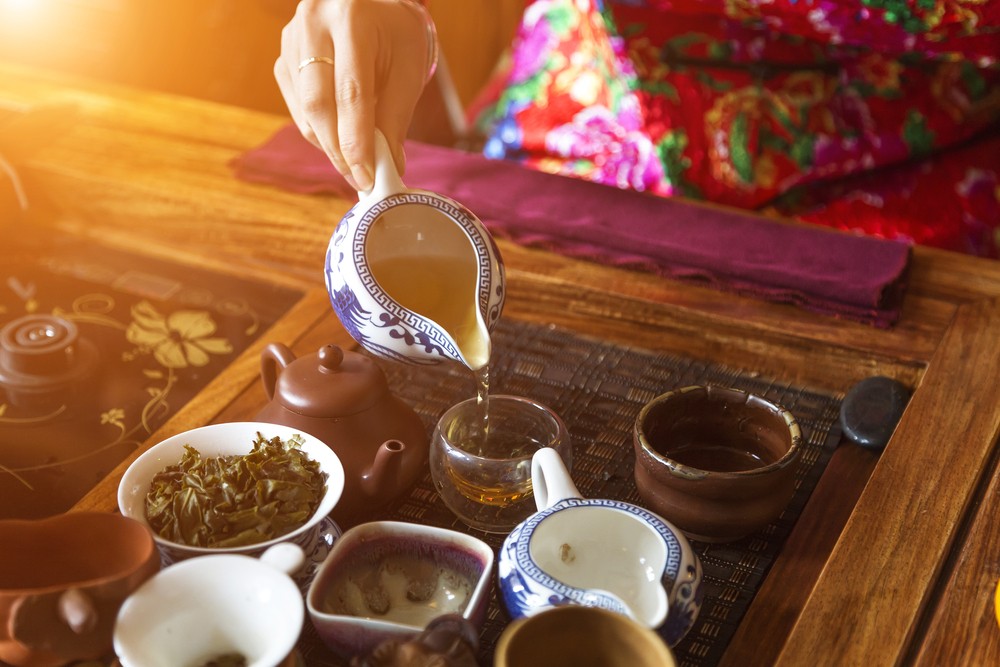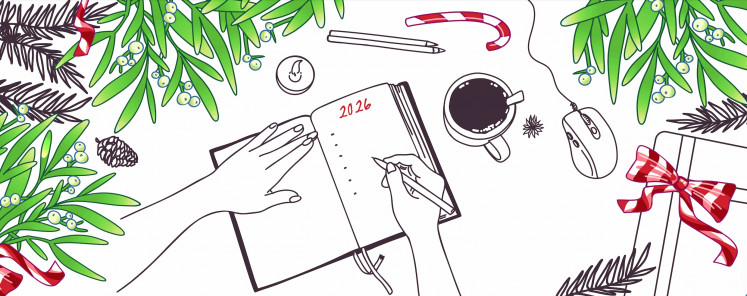Popular Reads
Top Results
Can't find what you're looking for?
View all search resultsPopular Reads
Top Results
Can't find what you're looking for?
View all search resultsWhat you need to know about Chinese tea-drinking traditions
Tea lovers, it’s time to deepen your knowledge of Chinese tea-drinking traditions.
Change text size
Gift Premium Articles
to Anyone
T
ea lovers, it’s time to deepen your knowledge of Chinese tea-drinking traditions. A book titled Chinese Tea by Ling Yun has revealed essential information about the beverage including the customs, history, philosophies and wisdom behind the tradition.
(Read also: The perfect cafes for afternoon tea time in Jakarta)
Popularity
Chinese people believe tea can enhance the mood. Whether it’s the caffeine or the tradition that brings people closer together, tea has become a tool to strengthen relationships. It bonds people and has also been used as one of the greatest ways to gain power over people, spread ancient philosophies and, of course, access rich health benefits.
At first, tea was only consumed by wealthy classes due to limited transportation to southwest parts of China. It was not until King Hui from the Qin Kingdom conquered the Shu Kingdom in Sichuan province that the beverage began to be enjoyed by the masses. Celebrating the victory, the king’s troops brought tea to their kingdom in the central area of China and, from then on, tea started to gain popularity among Chinese people.
For the 600 years until 1328, tea-drinking was a complicated tradition that involved using 24 utensils. During the Ming Dynasty, the tradition was simplified as the result of a decree that obliged Chinese to use loose tea instead.
Customs
One of the customs involved in drinking tea is to knock on the table as a sign of thanks to the person serving the tea. The habit originated from Qianlong, an emperor who ruled from 1711-1799 and continued the tea-drinking tradition, making it a key part of his regimen.
Another important element is the usage of teaware. It is important to use the right wares so that the precious tea does not go to waste. There are three factors to consider: location, the number of drinkers and the variety of tea. For example, the finest green tea goes in a colorless transparent pot, a refined purple clay Zisha teapot is for oolong tea, while scented tea should be drunk from bowls with covers to avoid losing the aroma.
A tea-drinking ceremony itself is usually set up like a performance, with the server making gracious hand movements to prepare and brew the tea before serving it to guests. Each tea variety has a different brewing method. Some teas are brewed in a pot over a fire, while others are brewed in the glass.
(Read also: A glimpse of centuries-old tea ceremony in Chaozhou)
Wisdom
If not for tea, Taoism would perhaps not have spread in China. But the teachings of Tao are showcased in tea ceremonies, which feature its main three components: etiquette, art and zen. It illustrates the rules and rituals of society, craftsmanship and managing one’s emotions and health. It also teaches the philosophy of Confucianism, by only filling 70 percent of the glass and leaving 30 percent empty to represent the space to gain more knowledge, so as to not be filled with judgements, ideas and assumptions.
Benefits
Drinking tea also has health benefits, which were discovered during the Tang Dynasty, which said “tea cures every disease”. Tea is rich in important substances such as the catechin antioxidant and polyphenols, which help to fight free radicals and are 40-100 times stronger than vitamin C.
In China, brewed tea leaf is used as a traditional medicine to cure wounds. Other benefits include the ability to control bacteria such as salmonella in cases of diarrhea, help people to lose weight, prevent cancer and promote inner peace. (kes)











